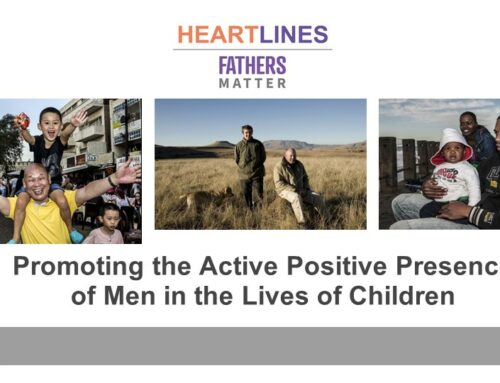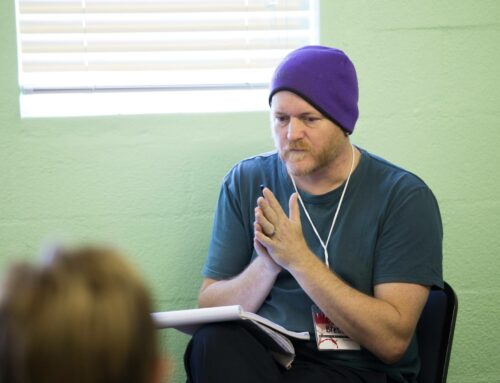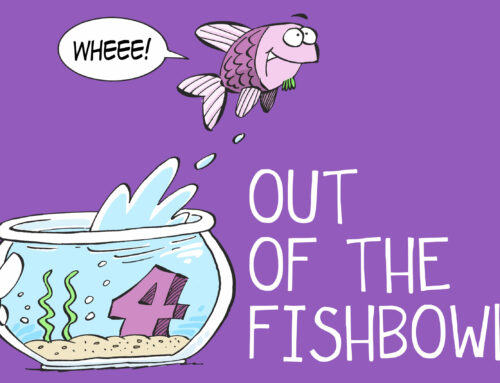How important is offline activism?
i spend a lot of time on Social Media dealing with issues of race and poverty and injustice.
The hope is to share and engage and challenge and invite people to explore different areas where their lives could be better. Most of this relates to areas where i am trying to listen and learn and engage and wrestle at the same time.
i might know or have discovered some things other people haven’t simply by being on some aspects of the journey for longer than they have. But more often than not it is sharing something that has challenged, inspired or encouraged me, that i’m hoping will impact others too.
When it comes to race and justice, none of us are ever going to arrive. The ongoing hope is that tomorrow when i wake up, i will be better than the person i started out today as.
i also learn a lot from many people who have been on some of the journeys for less time than i have. Learning and growing and being challenged is definitely a two-way thing. We all have blind spots. i am grateful for people who love me well and are brave enough to point them out.

The Best Move
About three years ago, i made a decision that i had to be more actively involved in transformation that took place offline. i believe the work i do online makes a difference. It is hard to gauge how much and hopefully it is a lot more than i will ever see.
But part of the challenge i felt was around calling other people to something that i wasn’t actively physically in-the-real-world an active part of. So i looked around for some organisations i could volunteer with so that worst-case scenario – if everything i did online was a waste of time, i would still hopefully be making a difference.
i found some space to volunteer with two incredible organisations – Bottomup and The LifeMatters Foundation.
Wow! i wish i could find the words to express how much of a gift that has been to me, which feels completely wrong. i was meant to be helping them [or so i thought] but a lot of the time i just wonder if i’m not in the way. Both organisations are run by incredible visionaries who i have learned so much from.
BottomUp
The critical thinking work that BottomUp does with its learners i am convinced is up there with some of the best education in the country. It is certainly far and above anything i received when i was at one of the so-called top former model C schools in the Western Cape [although i do semi-joke that i was just there to help keep the average down]. This at schools in the greater Grassy Park area that are not as well-financed or supported or looked after as many others. In an area so many people tend to dismiss.
During lockdown, led by some very talented staff and volunteers, we have seen Whatsapp challenges taking place that seek to understand current events and the systems and structures and forces that drive them. Every week we have a number of students online either working on speeches that seek to unpack present contexts and challenges, or as members of their Representative Council of Learners wrestling with ideas like learners returning to schools and the current syllabus and more.
Give someone a fish to eat and they will eat for a day, but teach someone to think and they will design a fishery and feed the whole village. That is the kind of thinking we see on a regular basis from Ashley Visagie and the team he leads.

Talking and Thinking must lead to Doing
For me, this is the key. And i know that i was in more danger than most, which is why i made the shift. The dangers of Slacktivism are real, yo!
i believe that online spaces hold so much opportunity to connect and engage with people who we might never get the opportunity to sit face to face with. But we can also get caught up in only ever talking about things or only ever thinking about things. Thus offline activism is key!
One philosophy or value of life that i have been drawn to in the past few years is the idea of Both/And. When we tend towards extremes we often get into trouble. But in so many areas of life there are spaces for more than one ‘right answer’. Sometimes these can seem to contradict and we end up holding things in tension. But more often than not i find they compliment each other. The connection i have with people online affects and infects [in a good way] the work i do with people when i am with them.
i do also think that some people do much better offline and there is no need for them to feel pressure to be online. For those who tend to do better online i would say that the offline space often helps bring grounding and reality so whether it’s time or money or presence or skills i do think everyone should have some kind of offline commitment. But there is no one way of doing this well. And we have so much to learn from each other.
For me, i’ve found it helpful to have regular checks [either by myself or with accountability people in my life] to review how i am spending my time in both the online and offline spaces. It is often helpful to take a break from certain online spaces that might become too conflictual, or even from online altogether. Regular unpluggings and stepping away can be good for the heart and soul [and sanity!]
How are you doing in this area? Is there a healthy connection between what you say and what you think, and what you do? And if not, is there any tweaking or bold moves that need to happen?
[For more on my time doing offline activism with BottomUp, click here]







Hello,
Interesting topic.
Inequality. How much is too much? Look here lol, it is reduced to 68 million… still can’t afford it. I would say somehow this is unfair. Unless maybe the owner invented a cure for cancer then he deserves it. But look: Some more even. R175 mil is the largest. lol
https://www.dogongroup.com/results/residential/for-sale/cape-town/bantry-bay/house/5009/
So my questions are:
1. How much is too much? R10 mil total assets + money? R20 mil?
2. In a case of Elon Musk, is he really worth R40 bil? How?
3. How would we control this? Tax? Who will we pay to control this?
So I agree having 6 billion as a president in SA shows you hes not to be trusted.But what can we do?
Hi Alan,
Thanks for the comment – it looks like you get it. Wow, that house is madness. You ask good questions and when it comes to the how i don’t have answers on that – could come up with some ideas with a group of friends, but what i find so intriguing is that we can’t even get people to agree that there is a too much. So many have bought completely into the capitalist system plus the history which props it up and feel like this person is worth that amount – those same people will never say out loud “And poor people deserve to die of starvation and malnourishment” but that in essence is what their viewpoint leads to. But they always dodge that question and get louder about some of the other stuff. If we could get peple to admit wholescale that it is injustice then perhaps it would be a lot easier to find some kind of cure. Because greed is its own pandemic!
All the best
Brett “Fish”
Interesting discussion you guys having here. Communism, socialism and capitalism all have problems. We all know this. None work very long.
The solution I think is for everyone to have basic needs met. Not through money. But a small piece of land. Grow vegetables and have basic water and electricity and clothes. Obviously rationed. This is basic socialism. Everyone must be taught basic life skills.
Regarding super rich. Government politicians should never be allowed to make billions as a politician like in SA. All politicians must have lower salaries and no outside business interests.
Regarding tech gurus like Gates and Musk and Bezos. Not sure what to do here. Some of these guys are very smart. So do we limit their money to say 1 billion? I think that’s is fair.
A billion dollar cap or limit?
How can society be structured where everyone has a safety net and innovation, risk and experience like Musk or whoever gets rewarded?
In order to replace a broken system we need to show a new better one first.
Capitalism sux. We know this. Communism sux as the state controls everything and we must work in factories for long hours and live in government buildings. Socialism can work in countries like Germany where most people work hard.
South Africa? Hmm who knows. Maybe small communes all over SA? Maybe small towns based on the Avalon project?
Would love to hear other ideas. Maybe we can put our minds together and see it from all sides and find a way to fix this.
All the best guys.
Hi Henry, thank you, appreciate your thoughts. Something a number of my friends have been speaking about is Universal Basic Income which is an interesting model and some of them have spent a lot of time researching and exploring that. i like the idea. Problem often when someone is managing money is the whole challenge or temptation of corruption. But yes, good to be sharing different ideas about these things, starting with the idea that the system we have is broken and that another one is possible or maybe a combo of previous ones…
All the best
Brett Fish
A tax on the rich.
UBI is interesting. It really depends on how many are working and how many are not. Also with UBI, the price of goods will compensate for the productivity or lack thereof. In other words inflation or even the loss of certain goods, services and industries completely. UBI is socialism, also like communism as a middleman the gov distributes it after their cut.
So economically we need to look at productivity. Goods produced. Services. Money is just a means of bookkeeping, nothing more. It’s not valuable intrinsically. It’s paper. So UBI is an idea but in practice the market will quickly compensate around those producing. You could get your R10000 UBI but there will be 20 breads at the local shop and each will cost R2000. That’s how markets compensate when artificial economic constructs are introduced.
70 percent capitalism and 30 percent socialism with minimal government in 1 month revisionary cycles (they can be fired). Total government transparency. is about the right balance brothers. After 77 years on this planet I’d say that’s the way.
You seem to have given this a lot more thought than me. Thanks for sharing your ideas.